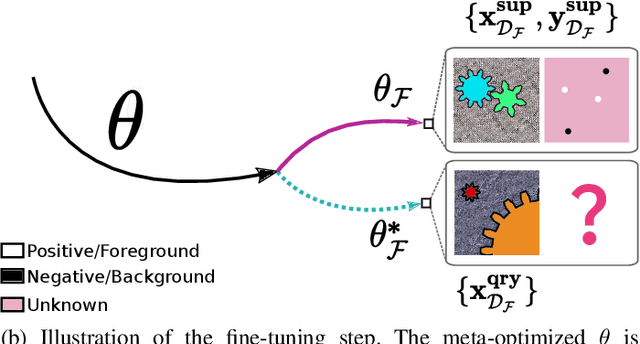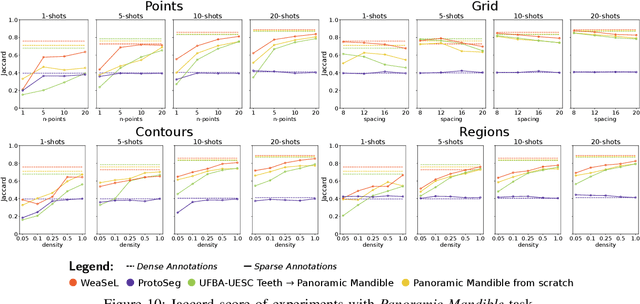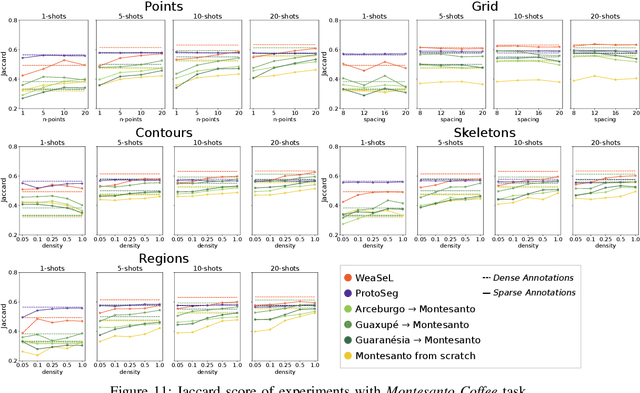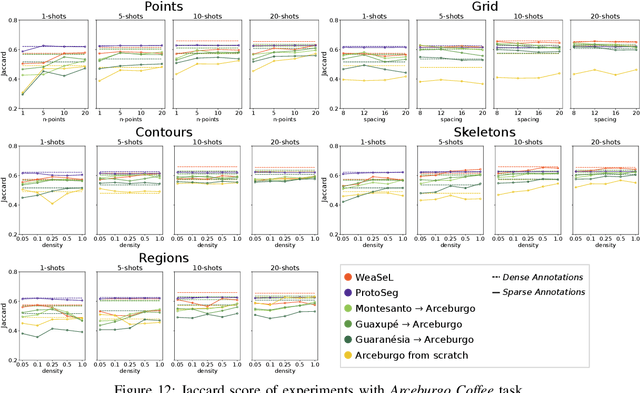Weakly Supervised Few-Shot Segmentation Via Meta-Learning
Paper and Code
Sep 03, 2021



Semantic segmentation is a classic computer vision task with multiple applications, which includes medical and remote sensing image analysis. Despite recent advances with deep-based approaches, labeling samples (pixels) for training models is laborious and, in some cases, unfeasible. In this paper, we present two novel meta learning methods, named WeaSeL and ProtoSeg, for the few-shot semantic segmentation task with sparse annotations. We conducted extensive evaluation of the proposed methods in different applications (12 datasets) in medical imaging and agricultural remote sensing, which are very distinct fields of knowledge and usually subject to data scarcity. The results demonstrated the potential of our method, achieving suitable results for segmenting both coffee/orange crops and anatomical parts of the human body in comparison with full dense annotation.
 Add to Chrome
Add to Chrome Add to Firefox
Add to Firefox Add to Edge
Add to Edge